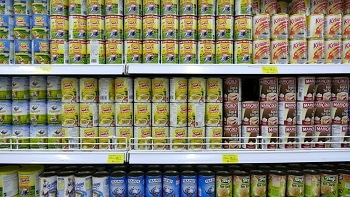Strong on Corrosion - Super Gentle on Food!

For companies involved in the food and beverage industries, corrosion prevention is non-negotiable. Corroding equipment requires costly repairs and can contaminate the product it contains. Among other materials, aluminum, tin, copper, titanium, and mainly stainless steel are widely used in these industries. Processed foods contain diverse aqueous solutions such as syrups, and additives used to improve food appearance, quality, and preservation.
These foods have a wide pH range and varying salt, water, and vinegar content that impacts food corrosivity. Cleaning and sanitation agents used in the industry include alkaline, acidic and oxidizing chemicals to ensure a high hygiene level. This great variety of corrosive environments and aggressive chemical agents require extreme cautiousness when it comes to corrosion protection. Not only must the legal requirements for hygiene be adhered to, but occupational health and safety guidelines as well.
Thankfully, modern science has developed new corrosion protection methods such as patented Vapor phase Corrosion Inhibitors that enable these very delicate industries to safely protect their systems from this destructive force. Cortec® VpCI® inhibitors are among best technologies available to prevent equipment damage and food contamination. VpCI®’s can be used to protect cans, water tank containers, and exteriors of installations made with carbon and galvanized steel, concrete, or wood
S-8 - Corrosion Inhibitor for Food Can Protection is part of a wide range of Cortec®’s safe, USDA, FDA and NSF compliant corrosion protection products. S-8 is a unique, economical product formulated only from FDA approved ingredients. It can be used in very low concentration and still provide complete corrosion protection in water, its vapors and their interface. The product is especially useful for the corrosion protection of metallic cans with different food items during their washing or sterilization of the packed food. This non-toxic “green” filming inhibitor is compatible with most products used in water treatment. It is especially efficient against corrosion in the presence of disinfectants and does not hydrolyze during the application.
Sodium salt of fatty amino acids and amino alcohol are the active ingredients of S-8. Benchtop laboratory tests show outstanding film persistency and stability in a wide temperature range. S-8 is compatible with the majority of water chemistries and outperforms other “green” inhibitors due to its stability and ability to form a thin protective layer that will not cause sticky deposits.